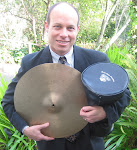Student achievement is directly related to teacher training. Well-trained teachers have a better chance of increasing the learning of their students. Now that I have lived long enough to have anecdotal data from two generations of teachers, the high school educators that taught me from 1974 to 1978 and my cohort of teachers working now, I have come to some conclusions about their differences.
However, when I compare my Campolindo High School social studies department to mine, I am surprised by the great amount of similarities: both departments are almost completely white, male, and athletic, fun-loving but able to manage the rowdies in a classroom with just a glance.
The AP program had not yet achieved great popularity in social studies, and the Campolindo social studies department did not offer AP Macro/Micro Economics, AP European History, and AP US History. Three of my teachers have received the specialized AP training to teach these courses, and one (Spinrad) has served as a reader for the AP US History essays. But the AP universe is the only area where my department excels over the Campolindo faculty. Why? Every social studies teacher at Campolindo had a Masters degree, and many earned their advanced degrees long after joining the Campolindo faculty. In contrast, only two members of my faculty hold an advanced degree, and only one (again, Spinrad) holds a Masters outside of the education field. The Campolindo faculty felt that getting an advanced degree was a basic prerequisite to successful teaching. My department does not.
Does holding a post-graduate degree really make a difference in teaching quality and student learning? Did the Campolindo social studies department generate higher levels of student achievement than my faculty? I believe the answer is yes, but I have no comparable test scores or other psychometrics. Muddying the waters further, the literacy of students nationwide has declined, and I will not blame that phenomenon on teacher quality (since the computer and communications revolutions are probably more to blame). Certainly, though, the Campolindo faculty was more committed to their chosen field of study, usually political science or history. They boasted of their expertise and kept up to date in scholarship. That excitement and interest oozed out of their teaching. Since these teachers proved their dedication to themselves as well as their fellows, they would be subject to cognitive dissonance if their practice showed a lack of dedication. For that reason alone, I would like all in my department to earn graduate degrees as well.
Subscribe to:
Post Comments (Atom)
Teacher by Day, Drummer by Night

Please recommend this blog to others
Popular Posts
-
Many students, grammar school to graduate school, dread writing large papers. However, if you know how to break down the task it becomes alm...
-
BF Skinner Carl Rogers This is a scholarly piece but worth the effort. Please read on... The book, Taking Sides (Noll, 2002) st...
-
I wrote this skit to illustrate how the evolution of art--its form, audience and production have changed. Form, audience, and production ha...



No comments:
Post a Comment